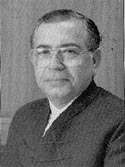
Meet Justice B.N. Kirpal and his Notable Judicial decisions
Justice Bhupinder Nath Kirpal (born November 8, 1937) was the 31st Chief Justice of India, serving from May 6, 2002, until his retirement on November 7, 2002. He began his legal career in 1962 and served as Central Government Pleader and Standing Counsel in the Delhi High Court before being appointed an Additional Judge there in 1979. He became a permanent judge of the Delhi High Court in 1983, Chief Justice of the Gujarat High Court in 1993, and was elevated to the Supreme Court in 1995. Over his Supreme Court tenure, Kirpal authored 195 judgments and sat on 916 benches.
Judicial Career and Philosophy
Justice Kirpal was known for his expertise in civil, service, property, constitutional, income tax, and VAT law. His judgments reflected a balanced approach, emphasizing constitutional protections, social justice, and environmental concerns. After retirement, he served as the first Chairman of the National Forest Commission, underscoring his commitment to environmental conservation.
Landmark Judgments
1. M.C. Mehta v. Union of India (2002)
Justice Kirpal was part of a three-judge bench that dealt with the allocation of Compressed Natural Gas (CNG) in Delhi to curb pollution. The Court imposed a duty on the State to protect public health and improve air quality, marking a significant step in environmental jurisprudence and public health protection.
2. T.M.A. Pai Foundation v. State of Karnataka
Kirpal authored the judgment of an 11-judge bench affirming that minorities have the constitutional right under Article 30(1) to establish and administer educational institutions. The judgment also emphasized that all citizens have rights under Articles 19(1)(g) and 26 to establish educational institutions, with minorities’ rights being specifically protected. It clarified that minorities, whether linguistic or religious, must be identified state-wise.
3. T.N. Godavarman Thirumulkpad v. Union of India (1996)
In this environmental case, Kirpal, along with Justice J.S. Verma, gave directions on sustainable forest use and mandated the creation of a monitoring system for forest preservation. The Court interpreted the term ‘forest’ broadly under the Forest Conservation Act, 1980, restricting commercial activities without central government approval.
4. Union of India v. Delhi High Court Bar Association (2002)
Justice Kirpal upheld the constitutional validity of the Recovery of Debts Due to Banks and Financial Institutions Act, 1993, affirming the Central Government’s power to legislate banking matters and establish adjudicatory tribunals.
5. Narmada Bachao Andolan v. Union of India (2000)
Kirpal, with Justice A.S. Anand, upheld the rights of tribal populations, ruling that displacement without free and informed consent was impermissible, reinforcing tribal rights and environmental justice.
Legacy
Justice B.N. Kirpal is remembered for his contributions to constitutional law, environmental protection, minority rights, and public health. His judgments have had a lasting impact on Indian jurisprudence, particularly in balancing development with social and environmental concerns.












comments